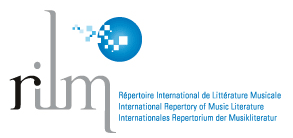El día que Caruso no cantó: las compañías de ópera Bracale y Salvati en Lima (1920)
Palabras clave:
ópera, Adolfo Bracale, Renato Salvati, Augusto Leguía, PerúResumen
En 1920, faltando un año para las celebraciones del Centenario de Independencia, acontece una situación particular en la historia de la cultura de la capital del Perú. Por primera vez se presentan dos compañías de ópera consecutivamente, por lo que se producen seis meses ininterrumpidos de canto lírico. A este hecho, se sucede también la inauguración del Teatro Forero y la representación de la ópera nacional Ollanta, a casi cumplirse un año del segundo gobierno de Augusto Leguía, dentro de un periodo conocido como “Patria nueva”. Si bien ambas temporadas fueron exitosas, los diarios y revistas de la época instigaron una rivalidad entre las dos empresas que se inició meses antes de su arribo, y continuó hasta el fin de la segunda temporada.
El presente artículo aborda la recepción de estas dos compañías a través de las columnas teatrales en las revistas Hogar y Mundial para ilustrar el lugar que ocupaba la ópera en Lima, reflejando las particularidades de la representación dentro del contexto político-cultural de la capital en el año 1920, pero también poniendo en evidencia dos modos de representar el género lírico que se extendieron durante los inicios del siglo XX a lo largo y ancho de Latinoamérica.
Publicado
Número
Sección
Licencia
Derechos de autor 2020 Vera Wolkowicz

Esta obra está bajo una licencia internacional Creative Commons Atribución-NoComercial 4.0.
ATRIBUCIÓN-NOCOMERCIAL 4.0 INTERNACIONAL
https://creativecommons.org/licenses/by-nc/4.0/
Usted es libre de:
- Compartir — copiar y redistribuir el material en cualquier medio o formato
- Adaptar — remezclar, transformar y construir a partir del material
- La licenciante no puede revocar estas libertades en tanto usted siga los términos de la licencia
Bajo los siguientes términos:
- Atribución — Usted debe dar crédito de manera adecuada , brindar un enlace a la licencia, e indicar si se han realizado cambios . Puede hacerlo en cualquier forma razonable, pero no de forma tal que sugiera que usted o su uso tienen el apoyo de la licenciante.
- No Comercial — Usted no puede hacer uso del material con propósitos comerciales .
- No hay restricciones adicionales — No puede aplicar términos legales ni medidas tecnológicas que restrinjan legalmente a otras a hacer cualquier uso permitido por la licencia.
Avisos:
No tiene que cumplir con la licencia para elementos del material en el dominio público o cuando su uso esté permitido por una excepción o limitación aplicable.
No se dan garantías. La licencia podría no darle todos los permisos que necesita para el uso que tenga previsto. Por ejemplo, otros derechos como publicidad, privacidad, o derechos morales pueden limitar la forma en que utilice el material.







